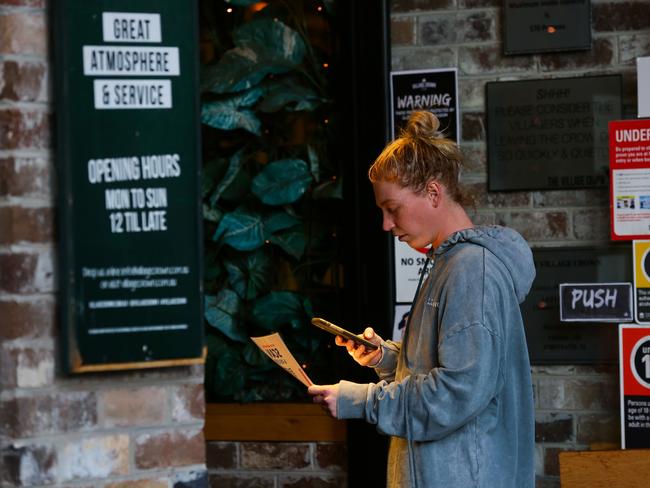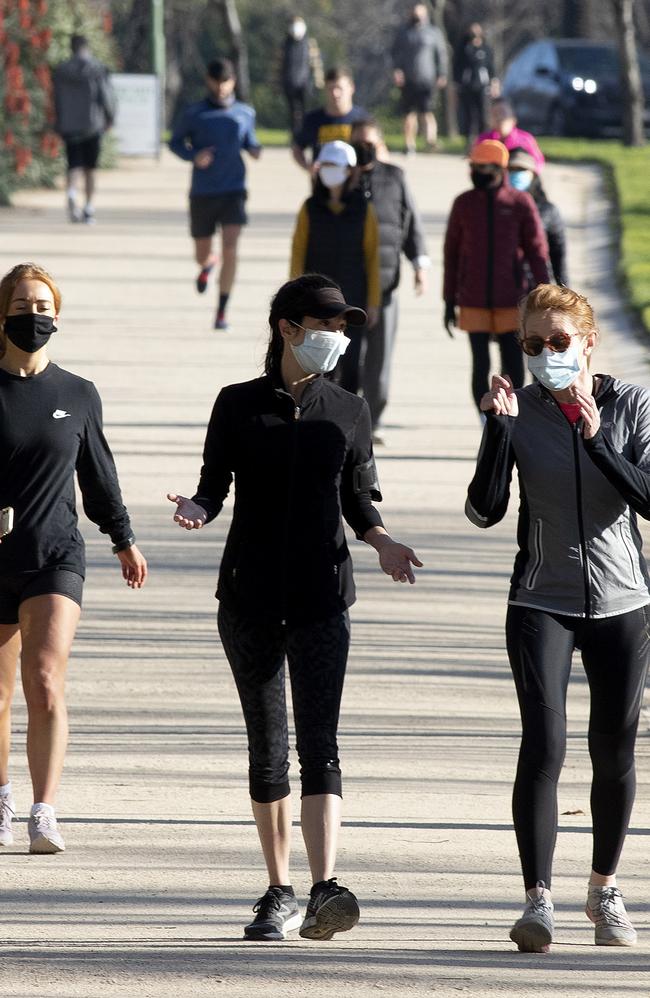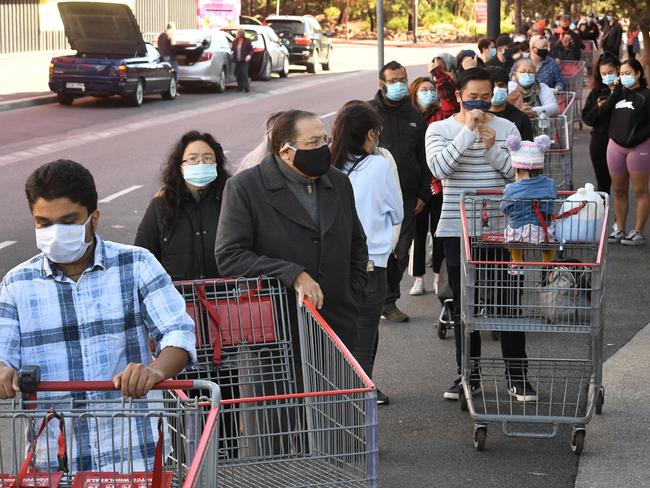COVID-19 contact forms: Why Melburnians are telling lies
Health Minister Greg Hunt has pleaded for Australians to stop lying on coronavirus contact tracing forms, after it was revealed a worrying number of Melburnians were putting their own health at risk, as well as those around them, by providing incorrect details.
National
Don't miss out on the headlines from National. Followed categories will be added to My News.
Federal Health Minister Greg Hunt has hit out at Australians who are lying on coronavirus contact tracing forms.
It comes after News Corp revealed that Melbourne residents worried about their privacy were lying on contact forms when attending venues including cafes and restaurants, risking their health and safety, and those around them.
“That is obviously illegal. Above all else, it does make it incredibly difficult (to contact trace). If you are thinking of your mother or your father, grandparents, the simple act of providing your details is the least you can do,” Mr Hunt told Seven’s Sunrise.
He added: “It is about keeping the each of ourselves safe but all the family and friends. I want to appeal to the highest instincts, not just fear of prosecution. Saving lives and protecting lives. That is the message.
“Each of us has this extraordinary gift, our actions can help save lives and protect lives or inadvertently risk the lives of others.”
A poll of 1500 Australians, given exclusively to News Corp, found one in 10 respondents had purposefully recorded incorrect or incomplete details on venue contact forms.
A quarter of those polled during the first two weeks of July said they were concerned the venue would not destroy their personal information properly. Nearly a fifth feared the business would use their details for marketing purposes.

The data provided by GuestCheck — a contact tracing platform — also found about one in ten respondents, who were aged 16 and over, believed providing their details to venues was unnecessary given they had already downloaded the Federal Government’s COVIDSafe contact tracing app.
Legislation exists in every state and territory mandating some venues to record patrons’ details and to hold them strictly for contract tracing purposes.
While most activities are currently off the menu in Victoria during the stage four lockdown, one in 10 respondents said they had provided incorrect or incomplete details on contact forms.
Nearly a quarter of Melburnians surveyed were concerned the venue would not destroy their personal details appropriately. About a fifth were concerned the business would use the information provided for marketing purposes.

Businesses including hospitality venues, beauty service providers, and physical recreation facilities among others must record the first name and phone number of customers, staff or visitors who attended for more than 15 minutes.
Their details must be kept for 28 days at which point they must be destroyed.
A DHHS spokesperson told News Corp the directions require relevant businesses to request that each person who attends the facility or venue for longer than 15 minutes to provide their contact details.

“If those details (name and phone number) are provided, there is then an obligation on the business to record those details, as well as the date and time that person attended the facility or venue (and if there are multiple indoor spaces, each indoor space that person visited). The business must maintain that information for 28 days,” he said.
“There is an obligation to protect patrons’ personal information from unlawful use or disclosure, and to destroy the information as soon as reasonably practicable after 28 days. “Businesses should keep clear records and ensure they are securely stored.
“Any unauthorised use of those details, such as for marketing purposes, is in breach of the directions and privacy requirements.
“A business in breach of the Directions made under the Public Health and Wellbeing Act 2008 may be subject to significant financial penalties.”

The data also revealed that almost half of respondents were concerned about their contact details being on a paper page for anyone to see.
Patrons at venues using GuestCheck text a unique venue code to a designated mobile number, which then provides them with a secure check-in link.
Visitors then provide information based on what that business is required to record. Staff can then cite a green screen presented on the patron’s device that confirms the guest has registered correctly.
GuestCheck CEO Adrian Kinderis, whose digital contract tracing app is used by more than 500 pubs and other venues across Australia, called on governments across the nation to mandate digital contract tracing forms at venues.
“Governments need to do more. By not regulating this properly it leaves our health officials and contact tracers wading through handwritten logs and a patchwork of unverified contact data,” Mr Kinderis said.
“Without complete confidence that venue guests can be traced and contacted, the system is totally flawed.”
He said they needed to ensure they were storing personal data safely and securely to “avoid the risk of a privacy breach”.
“That’s a financial and reputational risk no business can afford right now,” he said.
Damien Manuel, Director of Deakin University’s Centre for Cybersecurity Research and Information, said while details provided in digital contact tracing forms were not immune from security breaches, that should not deter people from providing the information.
“People give away so much more information to companies like Facebook,” Mr Manuel said.
“You should, when you receive an email or a text message, question the legitimacy of it. And if you take that thought process, then really, there’s no harm in providing your name and contact details.
“It’s not like you’re handing over your date of birth, license number, or passport information.”
